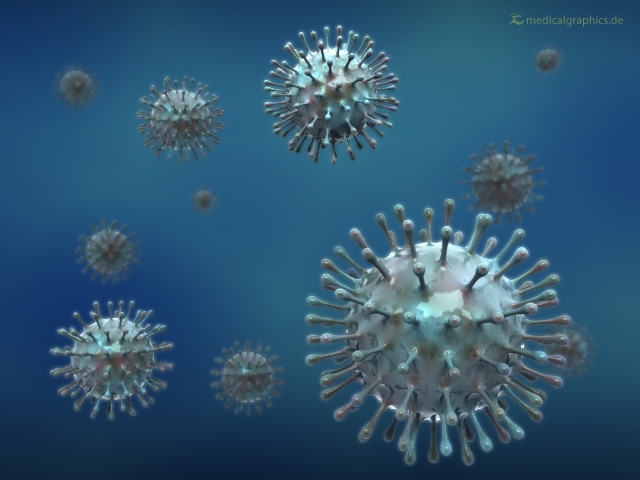Heat and Humidity: Will coronavirus stop summer

Illustration of a group of flu viruses (influenza)
Scientists warn that warm and dry weather will promote the spread of coronavirus. This is not only dangerous in winter, but also in summer. A team of scientists in the United States and Australia found that summer will not suppress the coronavirus-heat will only slightly reduce its spread, and a decrease in humidity will completely increase it.
Researchers at Auburn Hills Hospital in Massachusetts want to know how weather changes affect SARS-COV-2 and also on coronavirus. They analyzed changes in temperature, exposure to ultraviolet light, and spring rainfall in the United States, and studied their relationship with virus transmission. The results of the study were published in the Journal of Clinical Infectious Diseases.
It turns out that when the temperature rises to 10°C, the spread of the virus decreases slightly. However, a further increase in temperature has virtually no effect on the number of infections.
The study’s lead author, Dr. Shiv T. Sehra, said: “Due to the increase in temperature alone, the spread of disease cannot be significantly slowed down in summer.”
The scientists also modeled the rate of virus propagation at different temperatures and found that when the temperature drops below zero, the virus spreads the fastest.
The US Centers for Disease Control and Prevention has previously reported that as temperatures drop, the COVID-19 pandemic may worsen in autumn and winter. “Our results are consistent with these predictions,” Sehra said. “We also warn that this disease may worsen in the autumn and winter months.”
However, the authors pointed out that the study examined temperatures below 20°C-the temperature did not rise during data collection in the United States. Therefore, the behavior of the virus when this temperature mark is exceeded cannot be stated.
They said the results have not been clarified. Different regions use different strategies to control the virus, the format of the test infection is also different, and so on. Scientists try to consider these factors, but this issue still needs further study.
Scientists at the University of Sydney and their Chinese colleagues warned that dry days can affect epidemiological conditions.
This work was published in the journal Transboundary and Emerging Diseases.
Previous studies have determined the relationship between climate and the prevalence of SARS in Hong Kong and China and the prevalence of MERS-COV in Saudi Arabia, as well as the impact of daily temperature and humidity on the spread of SARS-COV-2 in China.
The study’s lead author, epidemiologist Michael Ward, said: “The pandemic in China, Europe, and North America occurred in the winter, so we would love to know between the COVID-19 case and the climate in Australia in late summer and early autumn. Is there a connection.” -When it comes to climate, we find that the main driving force is low humidity rather than temperature drop. This means that in winter. The risk of us Australians may increase due to reduced humidity. But in the northern hemisphere, areas with low humidity or periods of reduced humidity may be dangerous even in summer. Therefore, we must remain vigilant. ”
Ward said that as the humidity decreases, the air becomes drier. Therefore, the droplets ejected by sneezing and coughing will be stored in it for a longer time. At high humidity, the droplets stay in the air for less time and settle faster on the ground and on the ground.
After analyzing the infection in Sydney in March and comparing its fluctuations with weather changes. The researchers found that the reduction in humidity was actually responsible for the more active spread of the virus.
They calculated that a 1% reduction in humidity would increase the incidence by 6%.
“This means we must be careful when the weather is dry,” Ward said. “Public health systems should be aware of the increased risk during periods of low humidity.”
Also Read:
PlayStation and Android Presentations Canceled
More than 376 thousand people became coronavirus victims in the world
COVID-19: Test in humans: volunteers will receive a vaccine from COVID-19






